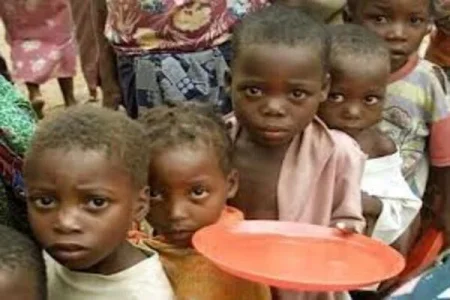
In the upcoming June-August 2024 lean season, nearly 55 million individuals in West and Central Africa are expected to face significant challenges in accessing food, according to a recent report by the Permanent Inter-State Committee for Drought Control in the Sahel.
This figure marks a troubling increase of four million compared to the previous forecast in November 2023, signaling a concerning trend of food insecurity exacerbation over the past five years.
The report highlights the particularly dire situation in conflict-affected northern Mali, where an estimated 2,600 people are at risk of experiencing catastrophic hunger (IPC/CH phase 5).
Additionally, economic challenges such as currency devaluations, inflation, stagnating production, and trade barriers have compounded the food crisis, impacting ordinary citizens across the region.
Nigeria, Ghana, Sierra Leone, and Mali are among the hardest-hit countries, with prices of staple grains soaring by 10% to over 100% compared to the five-year average.
Currency inflation, fuel and transport costs, ECOWAS sanctions, and restrictions on agropastoral product flows are identified as key drivers of this price surge.
Moreover, West and Central Africa heavily rely on imports to meet food demands, but rising import bills due to currency depreciation and high inflation pose additional challenges. The deficit in cereal production for the 2023-2024 agricultural season further exacerbates the situation, with per capita availability of cereals down by two percent compared to the previous season.
In response to the escalating crisis, key humanitarian agencies such as the World Food Programme (WFP), UNICEF, and the Food and Agriculture Organization (FAO) stress the urgent need for collective action.
They call on national governments, international organizations, civil society, and the private sector to implement sustainable solutions that enhance food security, bolster agricultural productivity, and address economic volatility.
Addressing malnutrition is also paramount, as 16.7 million children under five in the region suffer from acute malnutrition, with over two-thirds of households unable to afford healthy diets.
FAO, UNICEF, and WFP advocate for comprehensive approaches that strengthen education, health, water, sanitation, food, and social protection systems to ensure the well-being of vulnerable populations.
As the region grapples with the impending food crisis, collaborative efforts and proactive measures are essential to avert widespread hunger and mitigate the adverse effects on livelihoods and communities across West and Central Africa.




